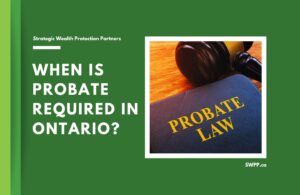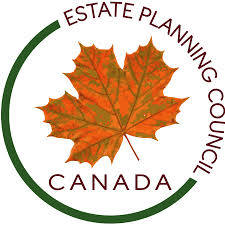Written by Ron Cooke, President & Founder of Strategic Wealth Protection Partners in Ontario, CEA®, Member of the Estate Planning Council Canada
Getting Ready to Make Your Ontario Will?
Thinking about making a will can feel overwhelming. In this post we’ll provide a checklist that will help you if you’re making a will in Ontario.
Just keep in mind that a will is not the same as an estate plan. If you have a large or complex estate with assets over $3 million, you should seek the assistance of an estate planning professional who can help you structure your estate to reduce taxes and fees while also helping you to build wealth now.
You’ll want to make sure that your assets go to your loved ones and aren’t taxed dramatically upon death.

Checklist for Creating a Will in Ontario
This simple checklist will get you started. But for a deeper view on what you need to do to create a legal will in Ontario, read the full post.
- Choose the type of will – Decide between a formal will, holographic will, or notarial will based on your needs.
- Decide whether to use a lawyer or an online will kit – A lawyer is best for complex estates, while a will kit may work for simple cases.
- List your assets and liabilities – Include real estate, investments, business interests, and debts to ensure nothing is missed.
- Consider your digital assets – Account for online accounts, cryptocurrency, and intellectual property in your estate plan.
- Gather important documents – Collect property deeds, financial statements, insurance policies, and existing legal agreements.
- Choose an executor and a backup – Select someone responsible and trustworthy to manage your estate.
- Name your beneficiaries – Clearly state who will inherit your assets to avoid disputes.
- Plan for minor children and guardianship – Appoint a guardian and ensure financial security for your children.
- Decide on specific gifts and charitable bequests – Outline who will receive sentimental items, cash gifts, or charitable donations.
- Determine how to distribute your estate – Decide on an equal or customized division among beneficiaries.
- Plan for your business and complex assets – Address succession planning, shareholder agreements, and investment properties.
- Work with a professional to minimize taxes and fees – Reduce probate fees, capital gains taxes, and unnecessary costs with expert guidance.
- Consider setting up a trust – Use a family, spousal, or testamentary trust for tax advantages and controlled asset distribution.
- Plan for incapacity with a power of attorney – Assign a power of attorney for property and personal care to manage your affairs if needed.
- Include funeral and final wishes – Document preferences for burial, cremation, ceremonies, or organ donation.
- Sign your will properly – Follow Ontario’s legal requirements, including witness signatures, to ensure validity.
- Store your will safely – Keep it in a secure location and inform your executor where to find it.
- Review and update your will regularly – Update your will after major life changes like marriage, divorce, or new children.
- Ensure your estate plan is complete – Address tax planning, trusts, and incapacity planning for full protection.
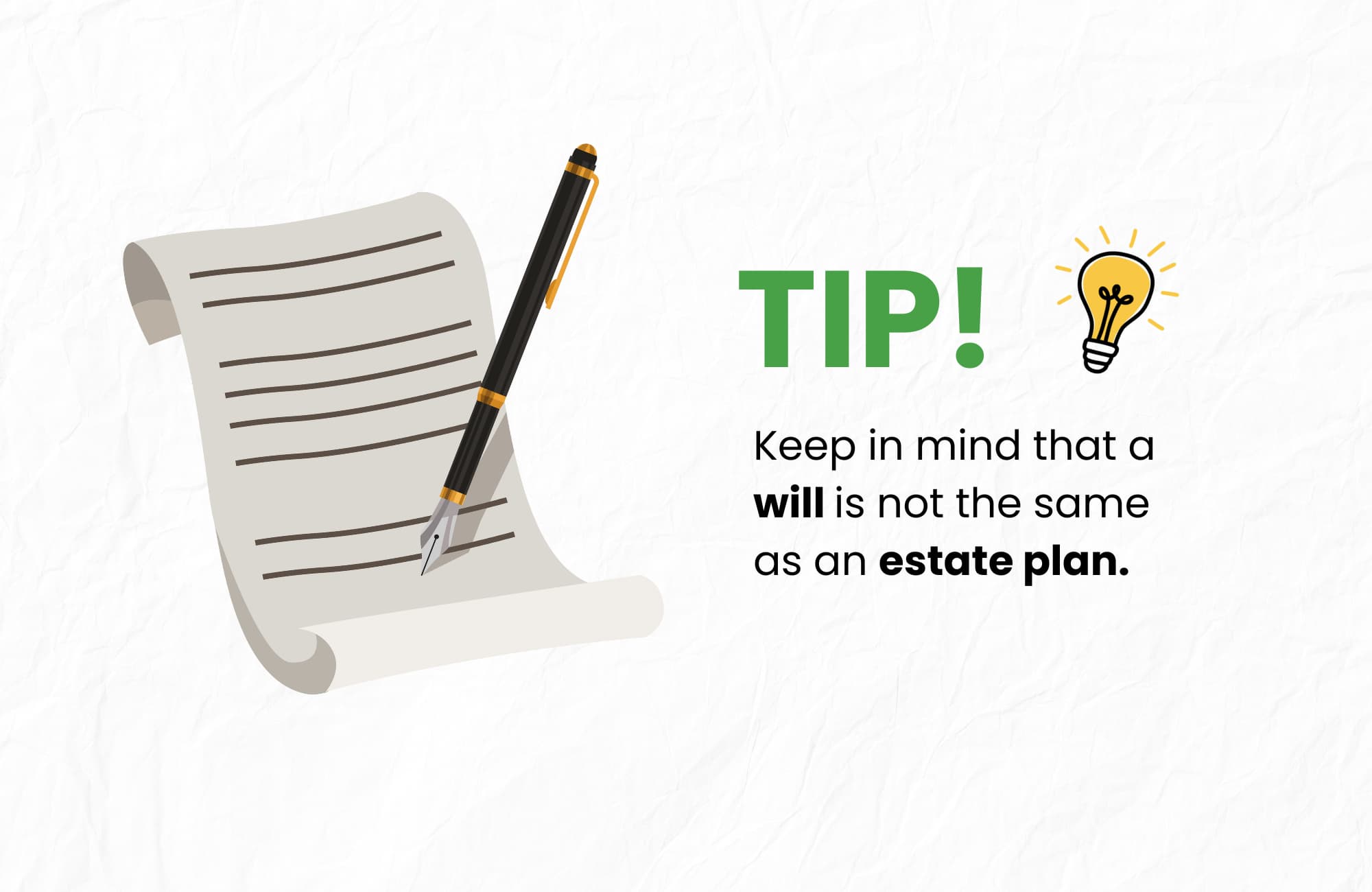
Understand the Different Types of Wills
Ontario recognizes several types of wills. A formal will is typed, signed, and witnessed according to legal requirements. A holographic will is handwritten and signed by you alone. A notarial will is not common in Ontario but may be valid if created in Quebec or internationally. Most people are best served with a formal will prepared by a lawyer to ensure it’s legally binding and clear.

Decide Whether to Use a Lawyer or an Online Will Kit
Online kits are simple and cost-effective, but often risky for anything beyond a basic estate. If you have children, multiple properties, a business, or cross-border assets, work with estate lawyers to avoid costly mistakes. A professionally drafted will ensures your instructions are crystal clear and your family members are protected.
Related Read: How Much Does a Will Cost in Ontario?
List Your Assets and Liabilities
Start with all your assets: real estate, savings, pensions, life insurance, business interests, and investments. Then list debts and liabilities, such as mortgages and loans. Having a full inventory ensures your own will accurately distributes all your assets.
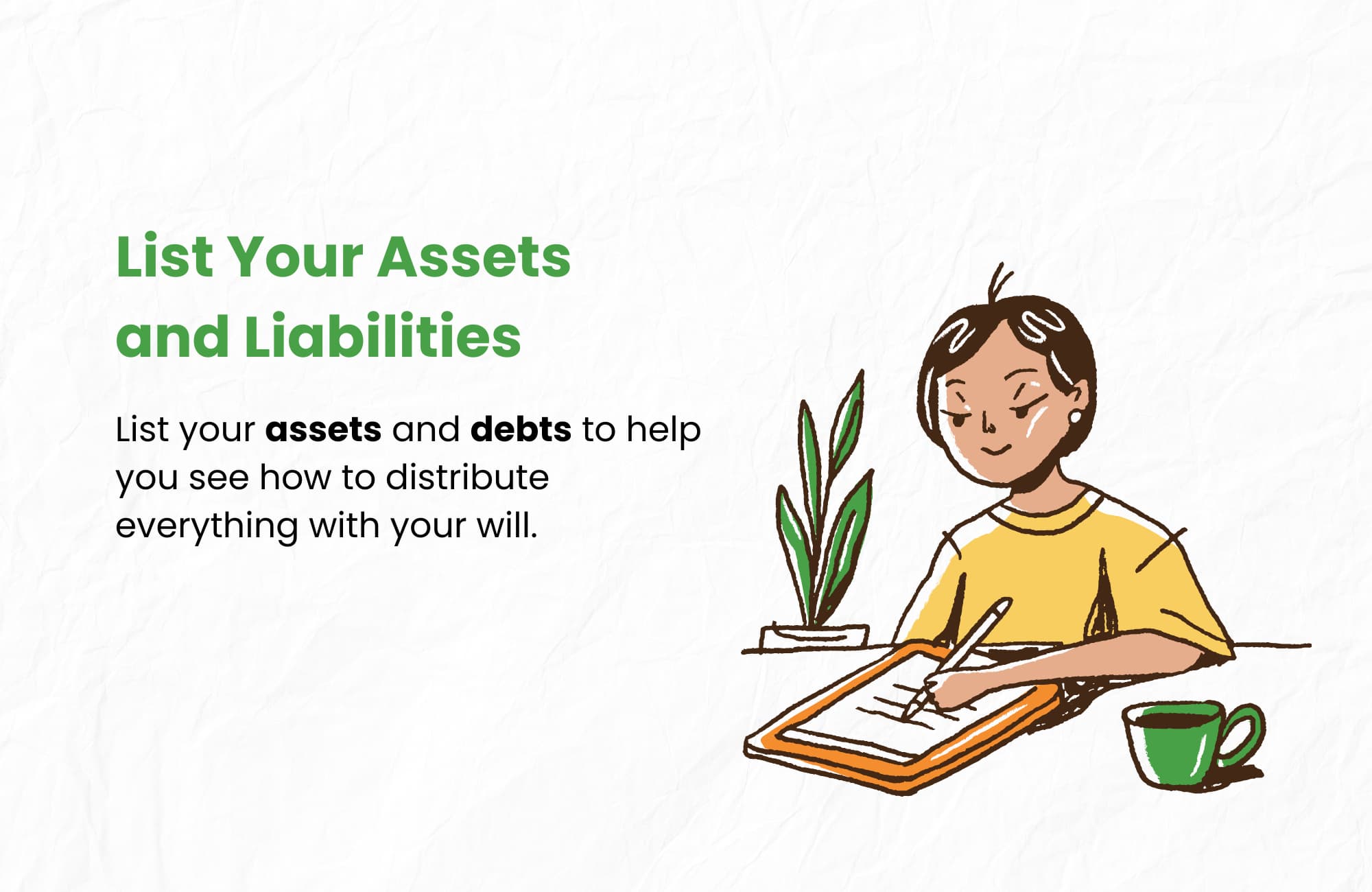
Consider Your Digital Assets
Your will should include digital assets like online banking, investment platforms, email accounts, social media, and cryptocurrency. Document how to access them and who can manage them. Digital assets can hold real value—don’t leave them out.
Gather Important Documents
To prepare your will, gather documents like property deeds, bank and investment statements, shareholder agreements, insurance policies, and any separation or marriage contracts. These records help your estate trustee act swiftly and effectively. The more organized you are now, the easier it will be for your family later.
Choose Your Executor and a Backup
Your estate trustee (executor) is legally responsible for carrying out your wishes. Choose someone responsible, financially literate, and able to handle emotional situations. Always name a backup in case your first choice can’t act.
Name Your Beneficiaries
Clearly name who should receive what. Be specific, especially when family dynamics are complex or if there are former spouses or stepchildren involved. Ambiguity leads to conflict—clarity brings peace.

Plan for Minor Children and Guardianship
If you have children under 18:
- Appoint a legal guardian you trust to raise them.
- Consider setting up a trust to manage their inheritance until they reach an appropriate age.
- Ensure there is enough life insurance or estate funding to cover their needs.
Decide on Specific Gifts and Charitable Bequests
Outline who receives personal items like jewelry, heirlooms, or cash gifts. If you support charities, include them in your will—it creates a legacy of meaning. These details bring comfort to loved ones and avoid future disputes.
Choose How to Distribute Your Estate
Decide whether to split your estate equally or use a custom approach. Factor in each beneficiary’s needs, taxes, and family dynamics. The key is to ensure your instructions are simple and legally binding.
Related Read: How Much Is an Estate Taxed in Canada?
Plan for Your Business and Complex Assets
Business owners should include succession planning, shareholder agreements, and instructions for selling or transitioning the business. Real estate investors should address capital gains and ownership structures. Complex assets require expert coordination to avoid delays and taxes.
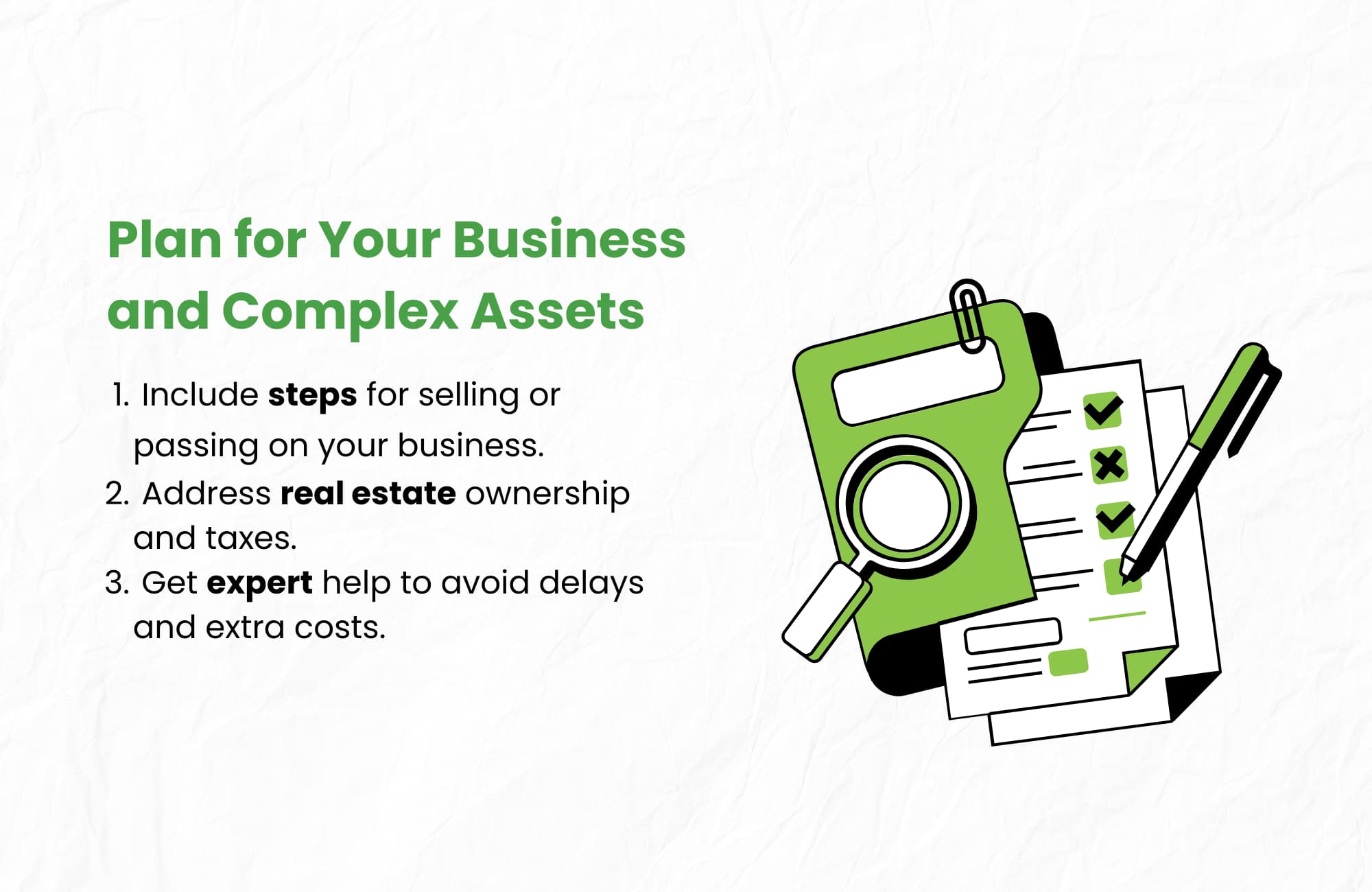
Work with a Professional to Minimize Taxes and Fees in Your Estate Plan
We use legal tools to reduce probate, defer or eliminate capital gains, and ensure efficient wealth transfer. This means more of your estate goes to your loved ones, not the government. Book your consultation now because tax planning can’t be done after you’re gone.
Consider Setting Up a Trust
Trusts are powerful tools for protecting assets and managing how and when beneficiaries receive their inheritance. Whether you’re shielding assets from taxes or planning long-term care for a loved one, trusts offer flexibility and control. We’ll help you choose the right structure.
Plan for Incapacity With a Power of Attorney
A power of attorney for property and personal care lets someone you trust handle your financial and health decisions if you become incapacitated. This is separate from your will but equally vital. Without it, your family may need court approval just to help you.
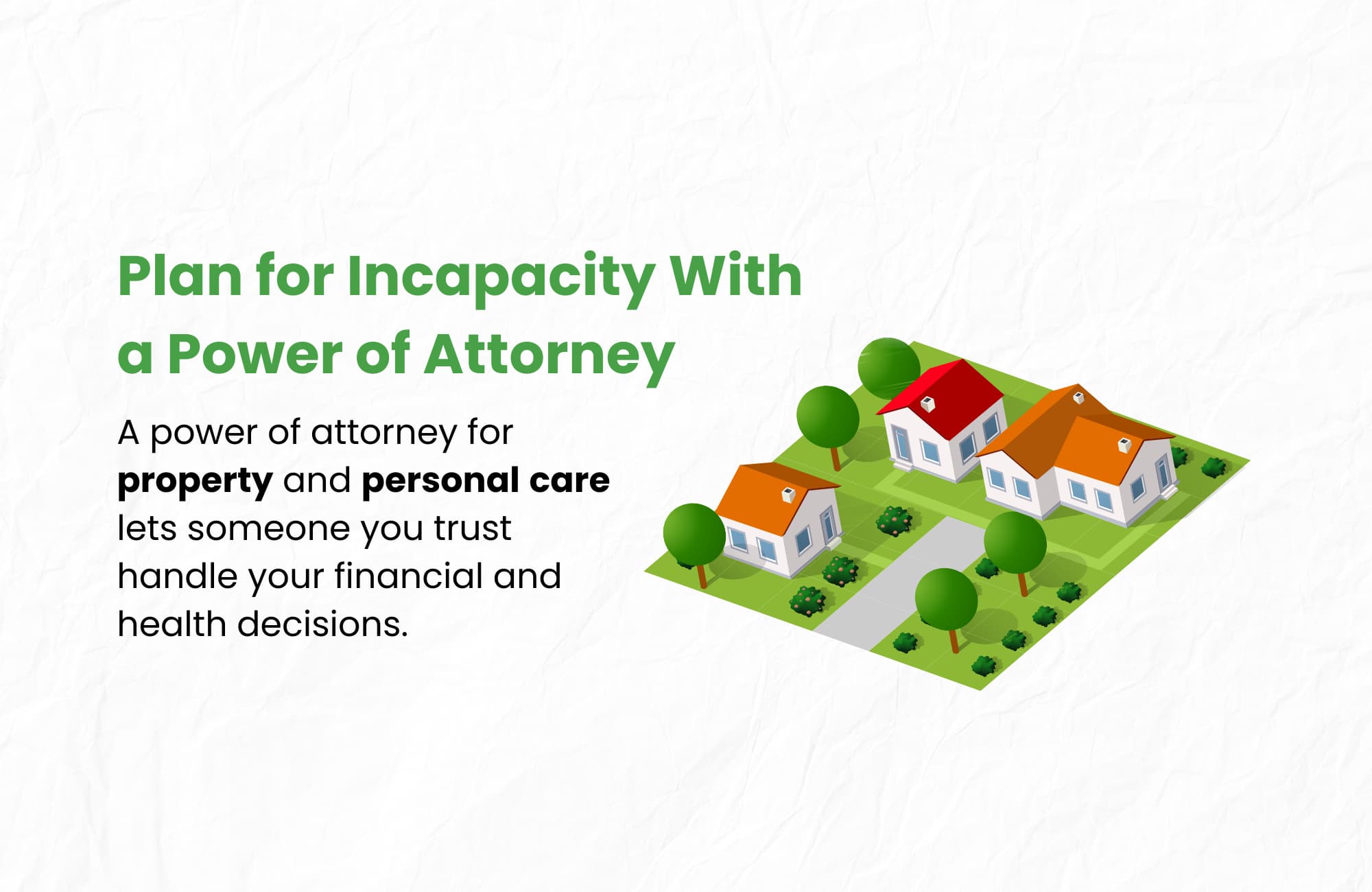
Include Funeral and Final Wishes
Detail your preferences for burial or cremation, religious ceremonies, and organ donation. These are deeply personal choices—putting them in writing saves your loved ones from emotional guessing. One final gift you can give is certainty in their time of grief.
Sign Your Will Properly
To be valid in Ontario, your will must be signed by you and witnessed by two adults who aren’t beneficiaries. Follow the legal requirements exactly, or the will could be challenged or void. When in doubt, work with a lawyer to avoid costly errors.
Store Your Will Safely
Keep your will in a secure but accessible location. Let your executor know where to find it, and consider registering it with a wills registry. A hidden or lost will can delay everything.
Review and Update Your Will Regularly
Major life changes—like marriage, divorce, new children, or a death in the family—should trigger a review. Aim to revisit your will every 3-5 years. An outdated will can be just as dangerous as having none at all.
Ensure Your Estate Plan Is Complete
A will is only one piece. Your estate plan should include tax strategies, powers of attorney, life insurance, and potentially trusts. Let’s build it together so everything works in harmony—and nothing gets left to chance.
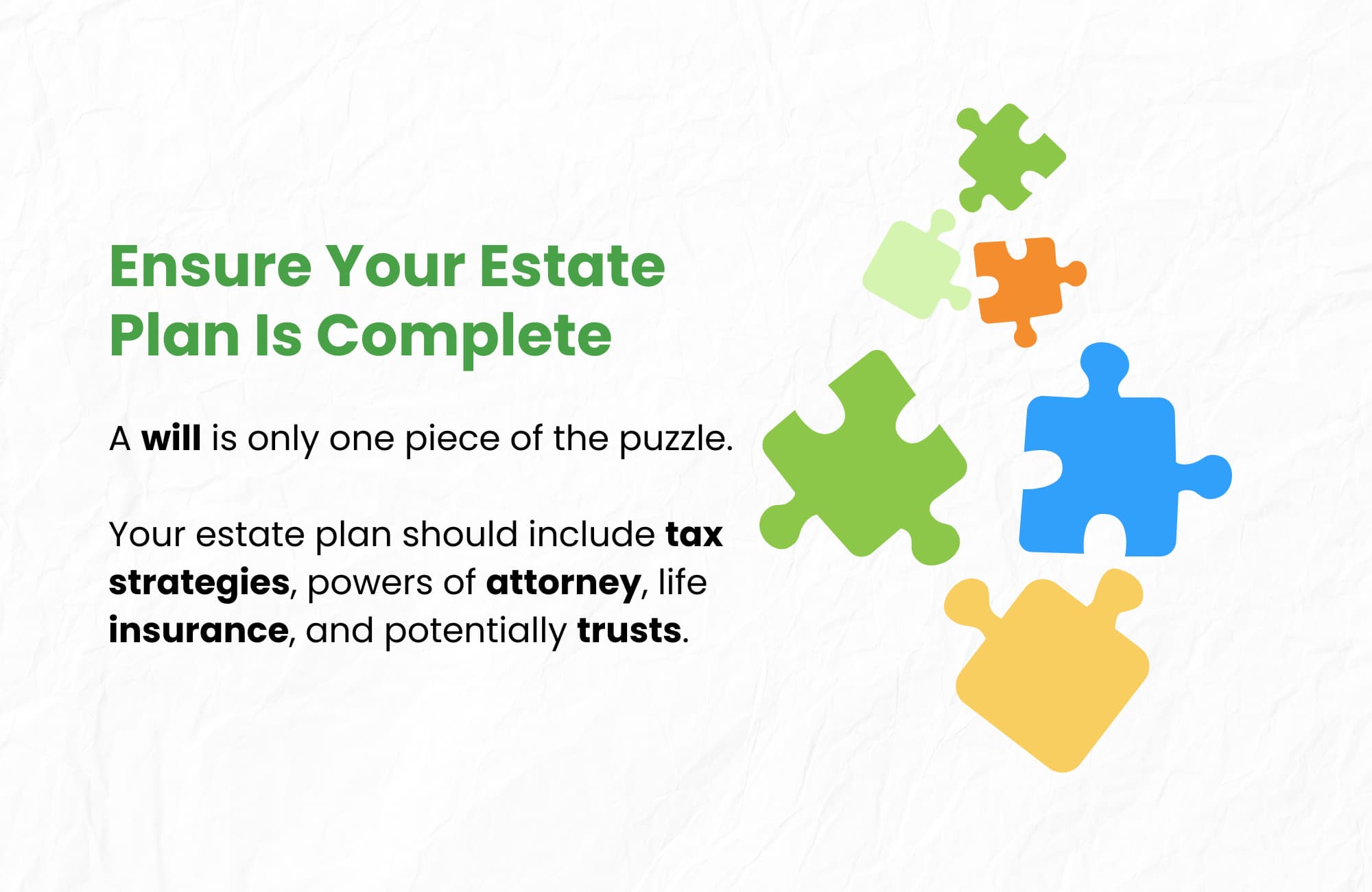
Common Questions about Making a Will in Ontario
Can I leave my assets to a common law partner?
Yes, you can leave your assets to a common law partner, but you must clearly name them in your legally binding will. Otherwise, they may receive nothing—even if you’ve been together for decades.
Will my common law partner get my assets automatically if I don’t make a will?
No. In Ontario, common law partners do not have automatic inheritance rights—they’re excluded under intestacy laws unless they are legally named in your will.
Will my spouse get my assets automatically if I don’t make a will?
Not always. If you die without a will, your legal spouse may have to share your estate with your children or other family members, based on strict legal formulas—not your personal wishes.
What are the requirements for a will to be valid in Ontario?
A will must be in writing, signed by you, and witnessed by two people who are not beneficiaries. It must clearly reflect your wishes and be made while you’re mentally capable—without these, it’s not valid.
What is the biggest mistake with wills?
The biggest mistake is not making one at all, or thinking a generic template will work in every situation. In reality, poorly drafted or outdated wills often lead to family disputes, court delays, and excessive probate fees.
How much does it cost to prepare a will in Ontario?
Costs range from free to over $1,000 depending on complexity and whether you use an estate lawyer. But remember—a cheap will today can cost your family thousands later in legal fees and taxes.
Are free will kits legal in Ontario?
Yes, free will kits are legal, but they’re often incomplete or invalid if not executed properly. For most people, especially those with children, a home, or investments, a professionally prepared will is the safest and most loving choice.
A Will Isn’t Enough to Protect Your Family’s Inheritance
Writing a will is a crucial step, but it’s just the beginning.
A will only states who gets what, but it doesn’t help you minimize estate taxes, avoid probate fees, or prevent legal delays.
In Ontario, probate fees (Estate Administration Tax) and capital gains taxes on properties can take a significant portion of your estate. If you own multiple properties, the financial burden could be even greater, forcing your loved ones to sell assets just to cover unexpected costs.
Without proper estate planning, your family could receive far less than you intended. The good news? There are strategies to protect your wealth—but they must be set up before it’s too late.
Keep Your Wealth in the Family with Proper Planning
A well-structured estate plan does more than just pass on your assets—it ensures your wealth stays in the family.
By using tools like trusts, life insurance, and gifting strategies, you can:
✅ Reduce or eliminate probate fees
✅ Minimize capital gains taxes on real estate
✅ Prevent legal disputes and family conflicts
Without these safeguards, your loved ones may face delays, unnecessary legal battles, and financial strain. A strong estate plan gives you peace of mind, knowing that your family will be cared for and your legacy will be protected exactly as you intended.
Schedule a Living Estate Plan Consultation
Planning your legacy is about more than numbers—it’s about ensuring your family remembers you and your values are honoured for many years to come.
Estate planning and trusts can feel overwhelming, especially if it’s your first time. That’s why we’re here.
With our simple, 5-Step Living Estate Plan, we make the process easy, helping you create a comprehensive estate plan or trust that protects your assets from taxes and probate fees while preserving your legacy. Tools like The Final Word Journal capture your story, wishes, and essential details like accounts and end-of-life plans, ensuring your family has clarity and comfort.
Take the first step today—schedule a consultation call and give your family the ultimate gift: peace of mind and the assurance they were always your priority.
Read More
If you’re writing a will, you may find these articles helpful:
- Is a Living Trust Better than a Will in Canada?
- Living Trust vs a Will in Canada
- How to Avoid Inheritance Tax in Canada
About the Author
RON COOKE, PRESIDENT & FOUNDER OF STRATEGIC WEALTH PROTECTION PARTNERS

With over 30 years in financial services, I’ve seen the challenges families face when a loved one passes—lost assets, unnecessary taxes, and emotional stress. That’s why I created the Living Estate Plan, a comprehensive process to protect assets, eliminate estate and probate fees, and create legacies that are remembered for many years to come.
This plan ensures your family receives not just your wealth, but a meaningful reminder of your care and love. Tools like The Final Word Journal capture your story, wishes, and essential details, offering clarity and comfort during difficult times.
Your final gift should be more than money—it should be peace of mind, cherished memories, and an organized estate.
Schedule a Call
Schedule a 30-minute consultation call with Strategic Wealth Protection Partners.
Click HERE to schedule a consultation.



